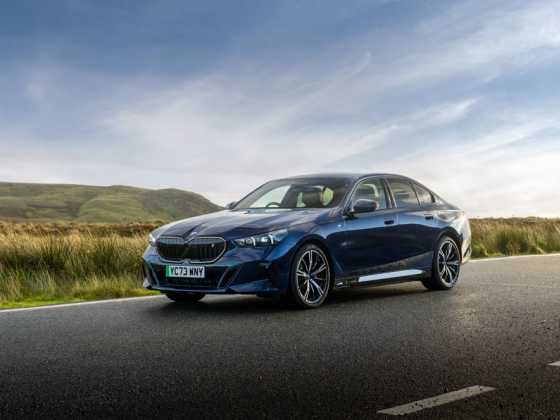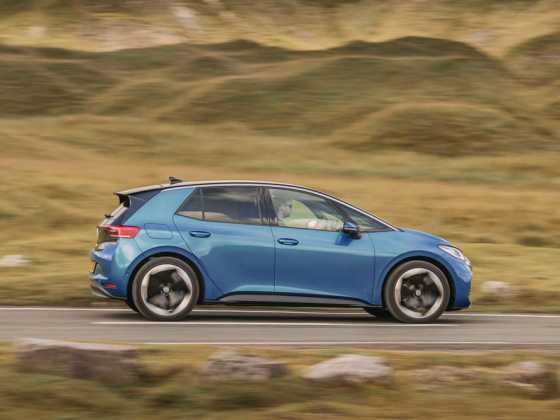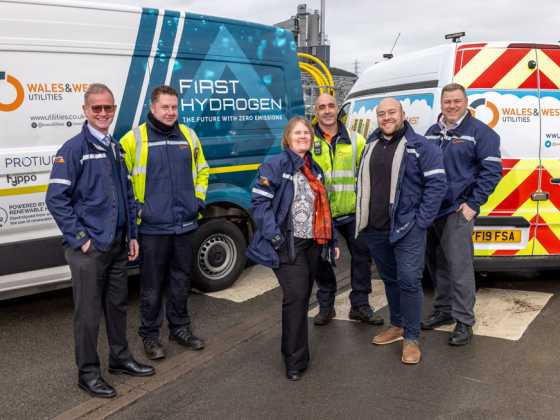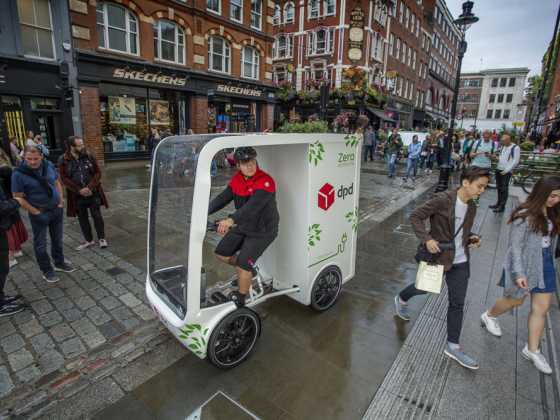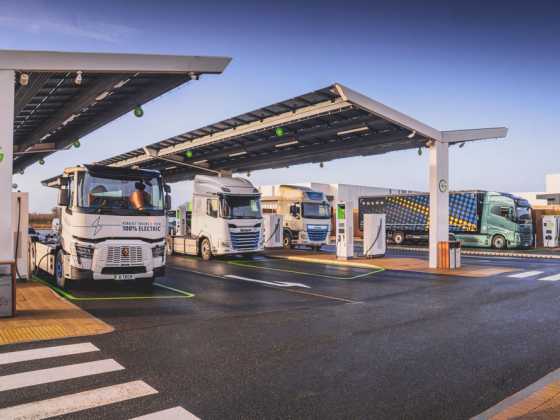Getting carbon from logistics under control
Rachael Dillon, climate change policy manager at the Freight Transport Association (FTA), talks about the Logistics Carbon Reduction Scheme.

Managed by the FTA, it is the only freight-sector based initiative that records, reports and helps reduce carbon emissions from logistics. The scheme, which is free of charge, has an inaugural Awards planned for May 2013, which aims to help recognise the efforts of the freight sector to green up their act.
The Rio Summit that took place in June this year aimed at driving forward global commitment to sustainability may have been largely overlooked for not making sufficient progress, but it did set the course for mandatory greenhouse gas reporting in the UK. Deputy Prime Minister Nick Clegg used the Rio Summit as a platform to make a long awaited announcement on the introduction of mandatory greenhouse gas reporting for UK quoted companies.
But it is not just Government that has the monopoly on good ideas on reporting and reducing greenhouse gas emissions. To date, 68 freight operators ranging from 3PLs and retailers to small hauliers, waste companies and local authorities have joined the Logistics Carbon Reduction Scheme (LCRS). They have committed to record, report and reduce their carbon emissions from road freight transport and collectively reduce the carbon intensity of their freight operations by eight per cent by 2015 based on 2010 levels. The freight industry provides a critical role in serving the needs of the economy from keeping supermarket shelves stacked to ensuring hospitals receive medicine. If we want the economy to move and to recover, there will always be some emissions, but FTA believes that there is strong will from operators to reduce their carbon footprint and to contribute to national greenhouse gas reduction targets. When it comes to carbon reduction, the freight industry is best placed to voluntarily report emissions and adopt decarbonisation measures that make commercial sense.
Freight and logistics movements are responsible for around 30 per cent of transport's carbon emissions, while cars make up more than 50 per cent. The Government can all too easily influence the carbon footprint of operators by using fuel tax or regulation. Through a voluntary scheme, the industry is making reductions independently. Fuel costs represents nearly 40 per cent of operation costs and every pound that the government takes on tax is a pound that can't be spent on new vehicles or innovative technology to reduce emissions.
Commitment
The LCRS was developed over three years ago by 12 leading FTA members who recognised the importance of making the industry more carbon efficient and since then, others have also committed. Today's LCRS participants include Asda, DHL, Howard Tenens, John Lewis Partnership, Sainsbury's, Tesco and Wincanton as well as four local authorities including Perth & Kinross Council and Newcastle City Council. A full list of LCRS participants is available at www.fta.co.uk/carbonreduction. By joining the scheme, operators can demonstrate their green credentials and take part in a confidential, national carbon reporting scheme. The scheme is free to join and open to all commercial vehicle operators, whether you have five or 500 vehicles. We work on the basis that if you purchase the fuel, then you own the emissions to avoid double counting.
The beauty of the scheme is that participants have flexibility over reporting, they provide what data they have, some operators are just starting on the carbon journey, others are more advanced. Operators are asked to supply simple data like the number of litres of diesel used by the company, number of vehicle kilometres, turnover and full time equivalents. This is on a strict confidential basis. The main requirement is that operators are consistent in their reporting. The data is converted into carbon dioxide equivalent (CO2e) emissions using Government approved conversion factors. FTA aggregates data from members, reports totals and tracks improvement in emissions and fuel efficiency over time. Individual company data returns are not made public. Data is requested on an annual basis but there is also an option to submit quarterly data.
FTA also visits each operator at least once to discuss the company's data submission in more depth to ensure that the data is robust and credible. This doesn't mean sifting through fuel invoices but discussing about how the data provided to the LCRS is relied on within the rest of the business.
FTA published its second LCRS annual report earlier this year showing that given the opportunity to take action voluntarily, industry can and is making reductions in carbon emission levels. Between 2009 and 2010, there was a 2.6 per cent reduction in emissions intensity when measuring carbon against vehicle kilometres. In April 2011, the then transport minister Mike Penning endorsed the scheme as a key initiative for industry to significantly reduce carbon emissions. At this time, there were just over 40,000 commercial vehicles covered by the scheme. By the publication of the second annual report, this number has grown to over 58,000.
Framework
FTA has also developed a framework to monitor the uptake of carbon emission reduction interventions from logistics. This is designed to support the datasets and provide core examples of how operators are cutting their emissions by measures such as eco-driver training, reducing engine idling and making greater use of double deck vehicles. In the second annual report, the results of the 2010 low carbon intervention survey are published revealing the measures that LCRS participants are using to cut emissions and, what the most popular carbon saving interventions are being trialled. Interventions aimed at reducing vehicle activity since 2010 amongst operators of the scheme have resulted in a saving of 77 million vehicle miles. The focus for this work has been on reducing empty running (which has accounted for 25 per cent of the saving) and use of on-board vehicle telematics to optimise delivery schedules and provide real-time visibility of vehicle activity (accounting for 20 per cent of the saving).
The LCRS proves that the issue of carbon is being taken seriously by operators and that reductions in emissions are happening. But there is still much to be done in growing the LCRS to an even bigger critical mass. The Department for Transport is currently undertaking a Freight Carbon Review to assess the contribution that industry is making to national greenhouse gas reduction targets. LCRS will form part of the evidence.
Our voice of the Freight Transport Association will be much more influential the more operators that join the scheme. The opportunity for freight operators to play a role in preventing regulation for curbing greenhouse gas emissions from freight transport is now not later. The scheme is free of charge, open to all commercial vehicle operators to join, however large or small. You don't have to be an FTA member to join. The scheme is also supported by LCRS Partner, Bridgestone Tyres. When it comes to carbon reduction, we believe that the freight industry is best placed to voluntarily report emissions and adopt decarbonisation measures that make commercial sense.
Awards
So what next for the scheme? The FTA has recently launched the inaugural LCRS Awards to celebrate the efforts of green leaders in the freight industry. The LCRS Awards will recognise individual LCRS member projects to reduce their carbon emissions from freight activity.
The Award categories are: carbon reduction through fuel efficiency (sponsored by Bridgestone Tyres); carbon reduction through innovative fleet management; carbon reduction through use of low carbon transport modes, and carbon reduction through use of alternative low carbon fuels and technologies.
Over the last three years, the LCRS has been the freight industry’s leading voluntary initiative for operators to record, report and reduce carbon emissions. The Awards plan to give LCRS members the opportunity to be recognised as leaders in fuel efficiency and carbon reduction. The LCRS Awards will be presented at FTA’s Annual Logistics Carbon Reduction Conference to be held in May 2013. If operators have not already signed up to the scheme, then this is an ideal opportunity to do so.
Further information
To join the scheme, you must complete a Declaration of Intent which can be downloaded from www.fta.co.uk/carbonreduction. Alternatively, email rdillon@fta.co.uk

